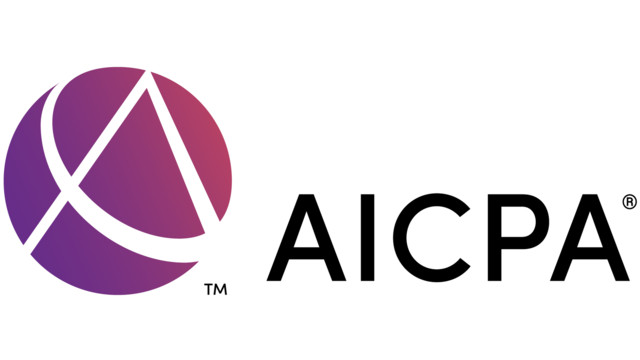Accounting
AICPA News: May 2021
May. 13, 2021

AICPA News is a round-up of recent announcements from the institute.
AICPA Names Four new Accounting Doctoral Scholars
The American Institute of CPAs (AICPA) recently named four new Accounting Doctoral Scholars (ADS), which identifies currently practicing CPAs interested in becoming accounting professors to assure future accountants have necessary and up-to-date skills. The following individuals will receive a $20,000 stipend to support their doctoral education:
- Katie Daugherty, Indiana University
- Brian Forsberg, University of Illinois
- Lauren Frederick, Cornell University
- Andrew Jones, Indiana University
The ADS program, first launched in 2009, recruits practicing CPAs who have expressed interest in and demonstrated potential for becoming college professors to attend an all-expenses-paid seminar. The seminar provides exposure to what it takes to earn a PhD in accounting and to teaching, research and service requirements of a college faculty member. Those who ultimately apply to and are accepted into one of more than 40 affiliated PhD programs receive a $20,000 stipend to support their education.
To date, more than 108 CPAs who went through the Accounting Doctoral Scholars program have completed their PhD, and another 45 are currently enrolled in PhD programs.
AICPA & CIMA ENGAGE 2021 Offers Innovation and Learning Opportunities for Accounting and Finance Professionals
AICPA & CIMA ENGAGE returns as a hybrid event this year, with the core conference taking place both online and onsite at the Aria Resort & Casino in Las Vegas on July 26-29, 2021. The event, designed for accounting and finance professionals, is sponsored by the AICPA and the Chartered Institute of Management Accountants (CIMA). This year’s conference will have several new features:
- A special, all-virtual June 8 keynote presentation, “Exploring New Frontiers: An Evening of Innovative Ideas,” with Virgin Group founder Richard Branson and Adam Steltzner, chief engineer for NASA’s Mars Perseverance rover
- A new learning track focused on sports and entertainment planning and management and expanded tracks on corporate finance and diversity, equity and inclusion
- Shared sessions with the national practice management conference hosted by the CPA Firm Management Association (CPAFMA), which is integrated into ENGAGE this year
To ensure safety, AICPA & CIMA ENGAGE 2021 will follow Centers for Disease Control and Prevention recommendations throughout the conference space, with socially distanced facilities, mask requirements and routine cleaning of the site. For online attendees, there will be several live-streaming enhancements to sessions and the exhibit space, building on the deep expertise the AICPA and CIMA have in virtual learning events.
Younger Americans Bearing the Brunt of Pandemic Financial Stress
In the year since the COVID-19 Pandemic began impacting all facets of American life, new data shows young adults are three times more likely to say they are experiencing pandemic financial stress compared to older adults. Three in four younger Americans ages 18 through 34 (75 percent) say they have been at least somewhat stressed about their financial situation since the pandemic began, compared with about 1 in 4 (27 percent) older Americans ages 65 and up. This according to new research conducted by The Harris Poll on behalf of the AICPA.
Since the start of the pandemic, nine in ten young adults who have experienced stress about their financial situation (91 percent) say it has had a negative impact on their mental wellbeing, including 3 in 5 (59 percent) who say the negative impact has been major or moderate.
The study found that among young adults who said that they experienced stress about their financial situation, nearly all of them (91 percent) have had it impact their everyday life. This most commonly manifested itself as feeling sad or down more often than normal (52 percent), frustrated more often than usual (49 percent), or having trouble sleeping at night (48 percent). Lack of interest or enjoyment in normal hobbies (45 percent) and changes in eating patterns (44 percent) are also prevalent symptoms of financial stress in young adults.
Steps to Help Manage Financial Stress
There are several steps Americans can take to help reduce financial stress and anxiety. The AICPA’s National CPA Financial Literacy Commission recommends these three steps as a starting point.
1. Keep perspective and know what you can (and can’t) control
Markets go down, but they also go up. These fluctuations are often out of your control. But it is generally easier to manage finance-related stress if you understand the financial issues that can be addressed, and which are out of your control.
2. Take inventory of your finances
It’s important to know where you stand financially, including regularly reviewing your spending habits, debt levels, savings and investments, and credit reports and scores. Start by reviewing your cash flow. It’s important to know how much is coming in, where you are spending, and where you can cut expenses and increase savings.
3. Find opportunities and tools to help you today and in the future
One great way to reduce your financial stress it to put much of your money management on autopilot. Take advantage of autopay options to reduce how many bills and payments you have to remember each month. At the same time, set up automatic savings plans to build an emergency fund for future economic downturns.
